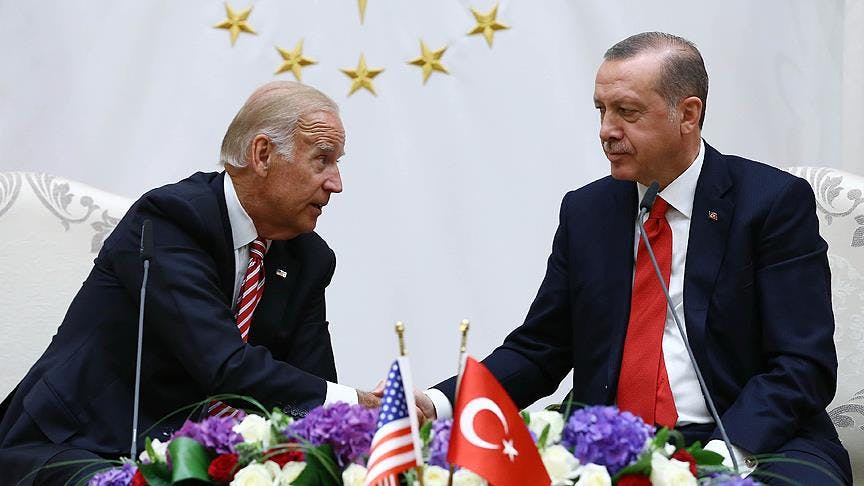Spring 2022
Reconcilable Differences
– Ambassador Mark A. Green
In this issue of the Wilson Quarterly, we explore some of the United States' trickiest relationships—countries we work with out of necessity or affinity, but with which we also harbor major differences.
My mother was a little girl in London during the Blitz. So, like many others of my generation, I was raised to see the world in terms of “good guys" and "bad guys.” We have to be the good guys, and our mission on the world stage should be to find, and assist, more good guys along the way.
Even in these complicated times, those notions are still part of my fiber. But I’ve also come to realize that advancing American interests, as well as lifting the human condition, sometimes requires partnering with countries who don’t fit so easily into those good guy / bad guy buckets. Some try to justify these collaborations by claiming that our values and principles will “rub off” on our partners—that these partners will become “better” merely through our interactions. Of course, in reality, that’s rarely the case. If these partners “evolve,” it’s usually independent of our collaboration and often because of material benefits they gain in the bargain.
Some justify relationships like the U.S.-Egypt relationship as “complicated.” They’re not complicated at all. Not if you’re clear-eyed and honest with yourself.
We should admit to ourselves that we cooperate with these actors simply because we need to: it’s the most effective, and sometimes the only, way to achieve specific goals that serve our national interests. We are unlikely to rub off on them, and we shouldn’t let them rub off on us. Hopefully, these partnerships are rare — as in rarely needed — but sometimes they are the price of global leadership.
I first became the president of the International Republican Institute in early 2014, not long after the Government of Egypt had raided the Cairo offices of the IRI, the National Democratic Institute, Freedom House, and the German Adenauer Foundation. Egypt accused these NGOs of undermining the Egyptian state, even as the U.S., Germany, and others were pouring billions of dollars into Egypt to support it after the tumultuous and, for a time, hopeful Arab Spring revolution. Forty-three of our staff were tried and convicted by Egyptian courts (mostly in absentia) and were given sentences of up to five years in prison, their freedom threatened for daring to promote freedom for others.

The Obama administration and legislative leaders of both parties and both chambers of Congress took up the cause of this injustice both publicly and privately. The late democracy warriors John McCain and Madeleine Albright (who chaired the IRI and NDI, respectively) were forceful (often in colorful terms) with representatives of the Egyptian government whenever they had the chance. Ultimately, the sentences for the NGO workers were overturned in 2018, but not before relations between Egypt and the U.S. had been badly damaged.
I believe that America is made of more idealistic stuff than Kissinger would prefer, and perhaps our defining foreign policy challenge is to reconcile the good with the bad in an increasingly complicated world.
And yet, during the eleven days of terrible violence in Gaza in 2021, we were all grateful for the role Egypt played to mediate a cease fire. Egypt remains a pivotal country in the Middle East. With the largest population in the region, a big economy, and a vibrant and influential culture, Egypt plays an outsized role in the Middle East and beyond. Egypt was the first Arab state to recognize Israel, and continues to play a constructive role in Israeli security to this day. Twelve percent of the world’s trade in goods passes through the Suez Canal. So, despite troubling trends in human rights, the U.S. continues to work with Egypt as a major strategic partner and non-NATO ally.
Some justify relationships like the U.S.-Egypt relationship as “complicated.” They’re not complicated at all--not if you’re clear-eyed and honest with yourself.
This issue of the Wilson Quarterly provides glimpses into some of these relationships, these partnerships-for-a-purpose. We explore some of the United States' trickiest relationships—countries we work with out of necessity or affinity, but with which we also harbor major differences.
We examine the U.S. relationship with Egypt, as well as that with Pakistan, Saudi Arabia, Turkey, and others. And, we explore one of the most challenging relationships of all, that with China, which perhaps defines all other difficult relationships around the world.
Henry Kissinger once said that “America has no permanent friends or enemies, only interests”—a decidedly realist outlook that reflected a calculating Cold War mindset. Yet I believe that America is made of more idealistic stuff than Kissinger would prefer, and perhaps our defining foreign policy challenge is to reconcile the good with the bad in an increasingly complicated world.
Ambassador Mark Green is President & CEO of the Wilson Center.
